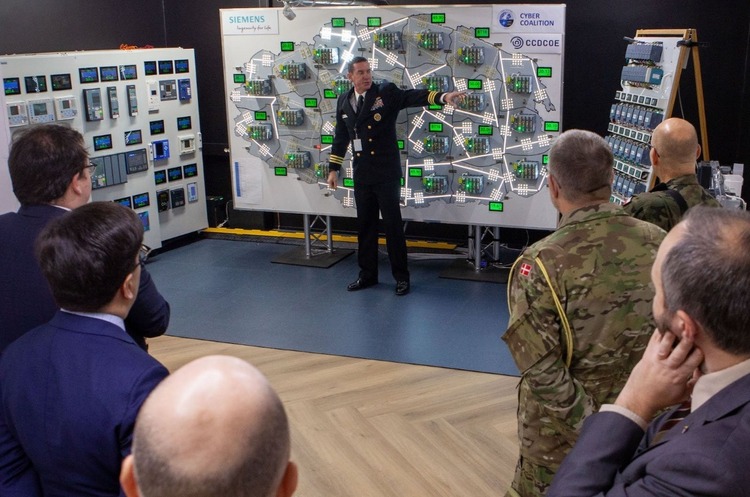Ukraine took part in a large-scale NATO cyber defense exercise
The goal was to increase the resilience of NATO countries to cyber threats, as well as their ability to conduct joint cyber operations

Ukraine took part in the largest ever NATO exercise, Cyber Coalition, which took place in Tallinn, Estonia, from November 27 to December 1.
NATO reported that, in addition to the 28 member states of the alliance, partner countries such as Ukraine, Georgia, Ireland, Japan, the Republic of Korea, Sweden, and Switzerland took part in the exercise. There were 170 people working directly in Tallinn and 1,300 people around the world.
Source. This was reported by Interfax-Ukraine.
The scenario was based on real-life cyber challenges, including attacks on critical infrastructure such as electrical substations, power grids, and water treatment plants, as well as disruption of NATO and allied assets during operations.
The purpose of the exercise was to increase the resilience of NATO and partner countries to cyber threats, as well as their ability to conduct joint cyber operations.
In an interview with Interfax-Ukraine, the exercise's executive director, U.S. Navy Commander Chazz Elliott, said that during the exercise, representatives of Ukraine passed information on the exercises' storylines to their colleagues.
"For example, if an exercise storyline says your power grid is under attack, they take that data and introduce it to the national training audience, saying that's what's happening right now. In the storyline we're playing now, for example, there is no electricity in Kyiv. I'm using this as an example, I'm not saying that this is exactly what is happening. The local educational audience is trying to figure out why this is happening. The bottom line is that they are the intermediaries between the exercises here in Tallinn and the Ukrainian training audience in Kyiv. And this allows us to build a network together," he explained.
At the same time, Elliott stated that what impressed him most about the cyber component of Russia's war against Ukraine was the coordination of "state and non-state actors when it comes to cyber attacks."
"I think in terms of attribution, it's obviously easier to let a non-state actor take responsibility, if you will, for a cyber attack, wherever it is. It gives some states a plausible deniability, saying we didn't do it," he said.
As an example, the exercise director cited the activity of the pro-Russian hacker group Killnet. "They carried out various attacks for which they claimed responsibility, including an attack on the NATO website and a power outage. You know, it's hard to accept that this is just a non-state actor. I think when you look at the capabilities of some of these non-state actors, it's pretty clear that they're being supported elsewhere," Elliott said.
The fact that the Ukrainians were able to participate in the exercise again "demonstrates the resilience of Ukraine," the NATO official said.
"It's great to have them here and we look forward to learning more lessons from them, they are great teachers," the exercise director summarized.
Background. As reported, Google is launching a cybersecurity training program for students, including Ukrainians.
If you have read this article to the end, we hope that means it was useful for you.
We work to ensure that our journalistic and analytical work is of high quality, and we strive to perform it as competently as possible. This also requires financial independence. Support us for only UAH 196 per month.
Become a Mind subscriber for just USD 5 per month and support the development of independent business journalism!
You can unsubscribe at any time in your LIQPAY account or by sending us an email: [email protected]



